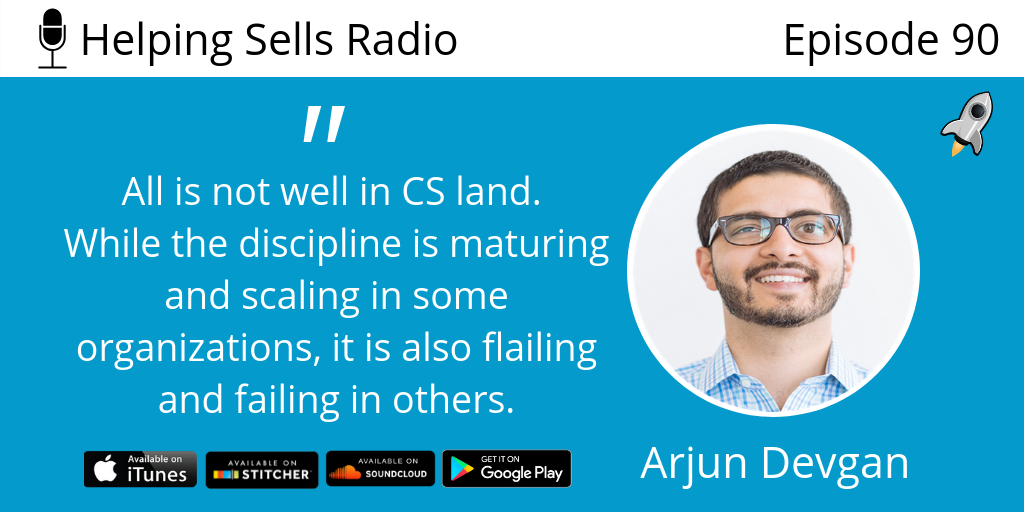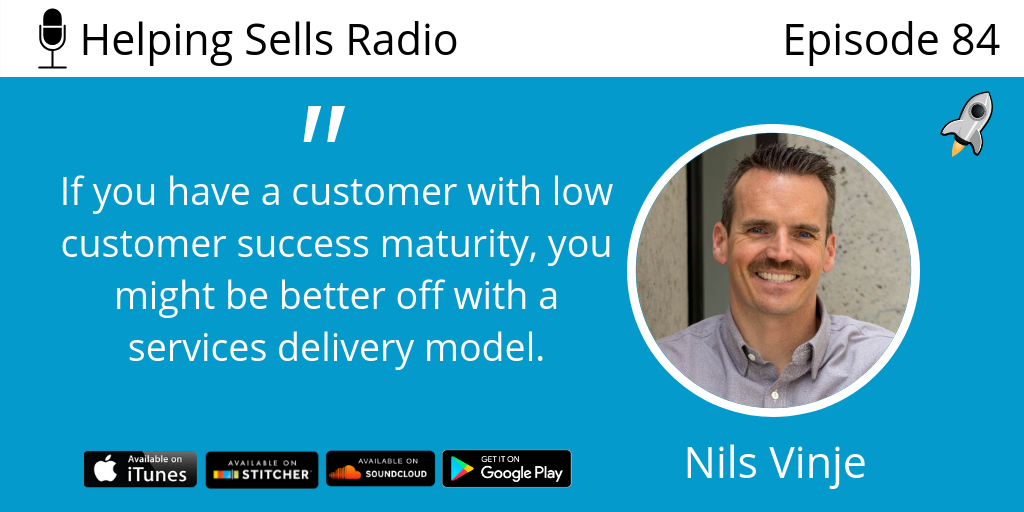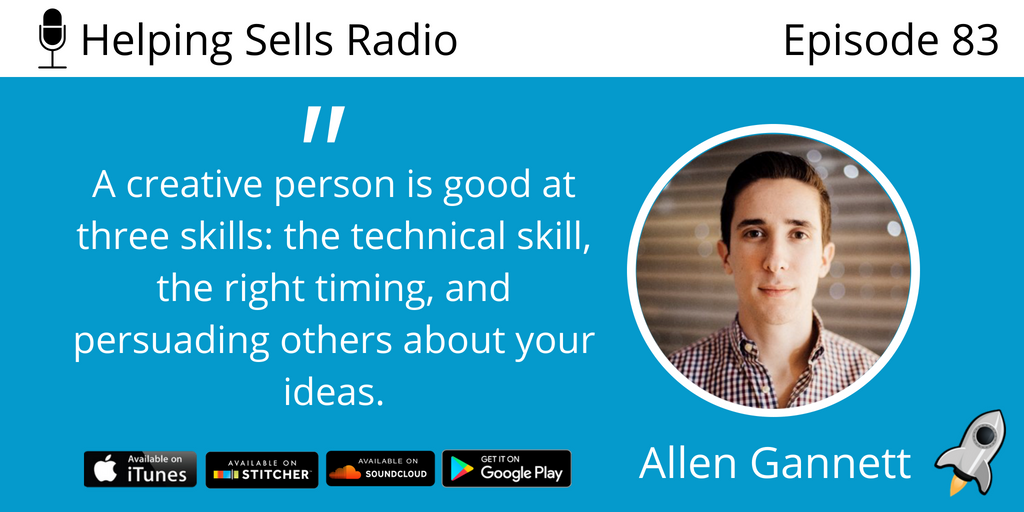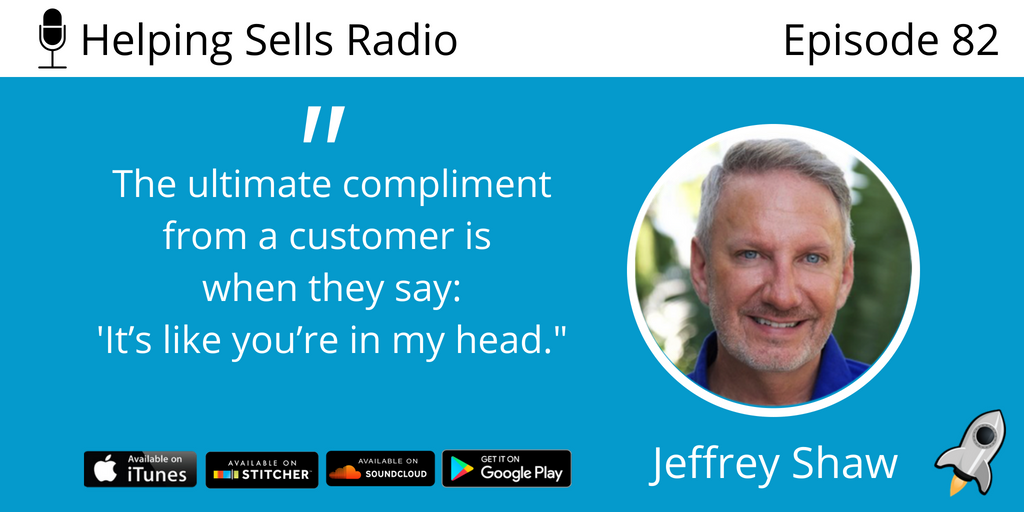Customer Success has taken the world by storm. And customer education is a pillar of customer success, says Dave Derington, Director of User Enablement of Azuqua and Adam Avramescu, head of customer education and training at Checkr. Think about it. Customer success is all about figuring out how to keep customers happy and get them to use more of our products. If that is customer success in a nutshell, then Dave and Adam argue that customer education is the answer to those questions. Said another way. Education sells more product. It brings more customers back. It fosters loyalty. It gets customers excited about your product and your company. It builds community. Customer education cannot solve all of your problems, but it can set customers up for success.
Sue Duris, director of marketing and customer experience at M4 Communications, comes into the studio to talk about the similarity and differences between customer experience, customer success, and marketing. We started with customer experience. Sue says her favorite definition of customer experience comes from Forrester, which says that it's every interaction or touchpoint a customer has with your brand. Every. Interaction. Bill had to ask, "Doesn't that include the experience our customers have when we send them invoices? What if the invoice looks like we created it manually. What if it was sent from a "no-reply" email address? What if the customer has a question about the invoice and no one gets back to her? Does the accounts receivable manager need a promotion to customer experience manager?" These are the kinds of questions we talk about with Sue on this episode of Helping Sells Radio.
Helping Sells Radio reaches across the pond to speak to David Jackson, CEO of TheCustomer.co following his recent talk at Pulse Europe 2018 titled, How to Construct a Predictive Health Score With or Without Usage Data, that he gave with Charli Rogers, Vice President, Client Success at Yext. The subject of that talk alone is more than enough reason to have David on the show. But digging further, David has a unique perspective on product-led customer success, which is timely with Gainsight's acquisition of Aptrinsic, and his views on simplifying customer are music to our ears.
We talk about the customer journey. But the term journey implies there is a path, and customers take the path. If customers are unique, and most of us think they are, then wouldn't they take their own path? And if each customer takes a unique path, then how are WE (software companies) supposed to manage that? The answer is: We aren't. That's why I like that Ellie Wu talked about moments. Ellie Wu, Senior Director of Customer Success at SAP Concur and a top 100 Customer Success Influencer, joins Helping Sells Radio to talk about owning moments (not the customer). We talk about a lot of other things too, including fawning over her Linkedin videos, whether to hire a customer success executive or a customer success manager first, and we even talked briefly about Olympic skeleton racer, Noelle Pikus Pace and how she overcame the possible destruction of her Olympic dreams with one statement from her doctor in her darkest moment.
What would you do, if you could split off a small team of developers and could direct them on changes to the product that customers hound you about every day? This new team, your team, would work in parallel to the product development team, unencumbered by the restrictions of the product roadmap. No more begging the product team to listen to you. No more making the case that this customer is special and this feature is important. No more explaining to customers, "I promise, I'll pass that along to our product team." What if you could make those changes happen? What if you could be a true voice of the customer? This is what Mel Bilge, customer experience led at Learndot by ServiceRocket can do. Jealous? In disbelief? Well, we talk to her about how it works, why she did it, and why Mel thinks this could be the future of the product / customer experience mashup.
Jay Gibb is the founder and CEO of a B2B SaaS company called CloudSponge and a partner at a distributed software engineering consulting agency called Arizona Bay. Arizona Bay builds software products for its clients, usually SaaS products. Roughly 10-20% of Arizona Bay's customers are "ideal customers." An ideal customers in this case is defined by someone who comes to Jay and already has pre-sold an unbuilt software product. Think about that. Jay's customer has sold, to their customer, a software product....then they go to Jay and ask his firm to help them build it. Jay, his customer, and the customer's customer get together and start making it happen. But this isn't even the best part of the story.
If you are a regular listener of Helping Sells Radio, you know that whenever we have a guest on the show to talk about customer success, pick challenge them (I'm putting that nicely here in the show notes) on the idea that customer success is really not yet about customer success and more about "our" success. I ask when are we going to change that and actually start talking about customer success. Well, we have two customer success guests on this episode, and they have an answer to the question. And the answer is: business outcome management. Dave Duke, Co-founder and Chief Customer Officer at MetaCX, and James Scott, General Partner of the Customer Success Practice at SuccessHacker explain that business outcome management is a core customer success competency (or should be) that provides a team a methodology for helping customers achieve business outcomes.
Ep. 94 | Sarah E. Brown Grow Your Startup Career When You're Not the Founder
Sarah E. Brown, author of Power to the Startup People: How to Grow Your Startup Career When You're Not the Founder, wants to help people evaluate whether and how to build a career in startups. As we talk about on the show, most of what is written about startups is for the founder. Little-to-none has been written to help employees. Until now. Working at a startup can be fun and exciting and enriching and lucrative. Working at a startup can also be stressful and purposeless and cliche and unprofitable. To make matters worse, one startup might be a perfect fit for you, but a terrible match for your best friend, who you think is so much like you. In other words, working at startups is not for everyone. The point is to evaluate what you want out of your career and see how that matches up with what startups can offering. You need to look for a fit.
Chris Yeh joined Helping Sells Radio to talk about his new book, Blitzscaling: The Lightening-Fast Path to Building Massively Valuable Companies, which he co-authored with Reid Hoffman. Blitzscaling is written for entrepreneurs who want to grow their companies to massive sizes and understand how to navigate the transitions from small company to medium company to large company. It's not all roses. As Chris explains, "You start off building a company and dream about a day when you've got it all figured out, and it's all going to be smooth from there. It turns out that time never arrives." What happens instead is that once you do have it figured out, you almost have to start again from scratch because your company is entering a new stage of its lifecycle and the new stage requires a new set of beliefs, operating principles, and processes, and sometimes even people.
We sure do sound like an expert at work when we educate our peers and stakeholders about best practices in our industries. After all, our executive teams are asking us to implement best practices. Our customers expect us to follow best practices. The conferences we attended attract us with sessions on best practices. We learn them. We implement them. We are praised when we do. But did any of us sit down and think, before we charged down best practices hill, "Is following these best practices right for us?" Jay Acunzo, keynote speaker, founder of Unthinkable Media and author of the upcoming book, Break the Wheel: Question best practices, hone your intuition, and do your best work, helps us change how we think about best practices.
There is a first time for everything and this episode has two first times. First, we took Helping Sells Radio on the road to visit Dustin DeVan, founder and CEO of BuildingConnected at his office to talk about disrupting the construction industry with collaborative software. Second, Sarah E. Brown, founder and long-time co-host of Helping Sells Radio and director of content marketing at BuildingConnected, joins the show as a guest host AND a guest. She even took over the show open. So, this was an exciting shows on multiple levels.
Ep. 90 | Arjun Devgan Do You Have an Adoption Framework to Help Your Customers?
Here is the question of the day: "How far do you go to help a customer adopt your software?" I ask this question to many of our guests, and there isn't one right answer. As you can imagine, there are many answers. In other words, "It depends." My favorite answer now comes from Arjun Devgan, VP of global customer success and services at Percolate. His answer is to create a methodology for adopting the software, publish an eBook describing it, and then publish tools customers can use during their implementation or digital transformation.
Nils Vinje, from Glide Consulting, just gave me a new perspective on customer success readiness at SaaS companies. Although Jason Lemkin says customer success is a single digit hire, and he may be right most of the time....Nils says, "Not so fast." According to Nils, when to hire customer success depends on the maturity level of your customer. "It's wonderful to disrupt a market. However, it's also terrible to disrupt a market." Said another way, it's good to "have the first solution" to a problem because it's a greenfield opportunity. BUT. "If there has been no solution there prior, there is no ownership in that organization for that particular function. There are no processes. There are no people who run those processes. The customer will therefore need a lot more help than a customer success organization can or should provide.
Are you creative? Most of us business people do not think of ourselves (or our professions) as creative. When we think of creative people, we think of artists and musicians and actors and writers. This is just one of the mistakes we make about creativity. Allen Gannett, founder and CEO of TrackMaven and author of The Creative Curve: How to Develop the Right Idea, at the Right Time, explains that anyone can be creative because creativity can be learned. He did the research and provides a way of thinking that will help any of us believe we can be more creative.
How well do you know your customers? Do you know their lingo? Do you use their lingo in your communication with them? Do you really? Jeffrey Shaw, author of the book Lingo: Discover Your Ideal Customer's Secret Language and Make your Business Irresistible, joins Helping Sells Radio to help us, help our customers say to themselves, "They so get me." One tactic Shaw suggests is for us to use self-identifying questions so a customer can screen themselves to us. He calls it to help "customers how up 80% positioned." Shaw explains, "When you know your customer so well you really embody their emotional triggers that you can pose questions in your marketing and on your website that ring so true for your ideal customers their typical response is "WOW! It's like your in my head."



-2.png)
-1.png)
-1.png)
-1.png)
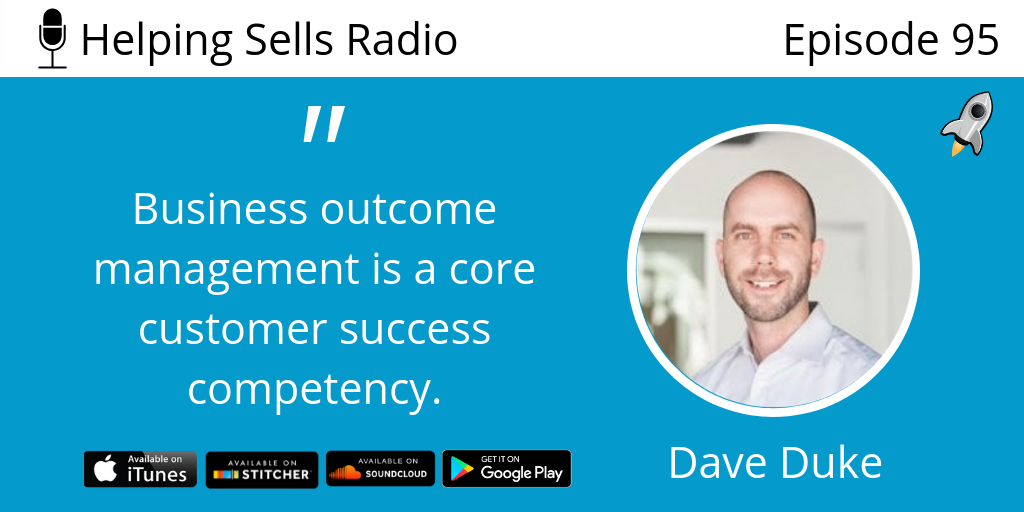
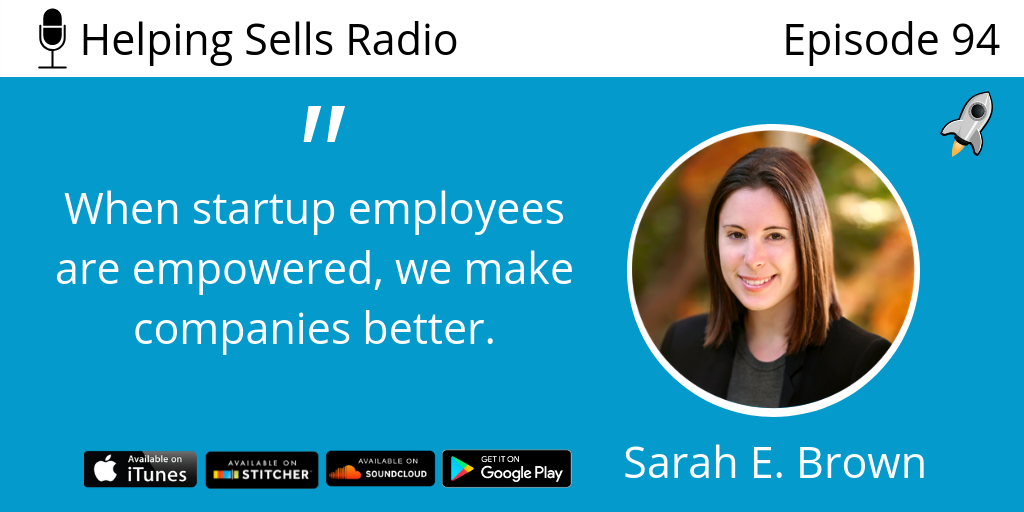
.png)
.png)
.png)
